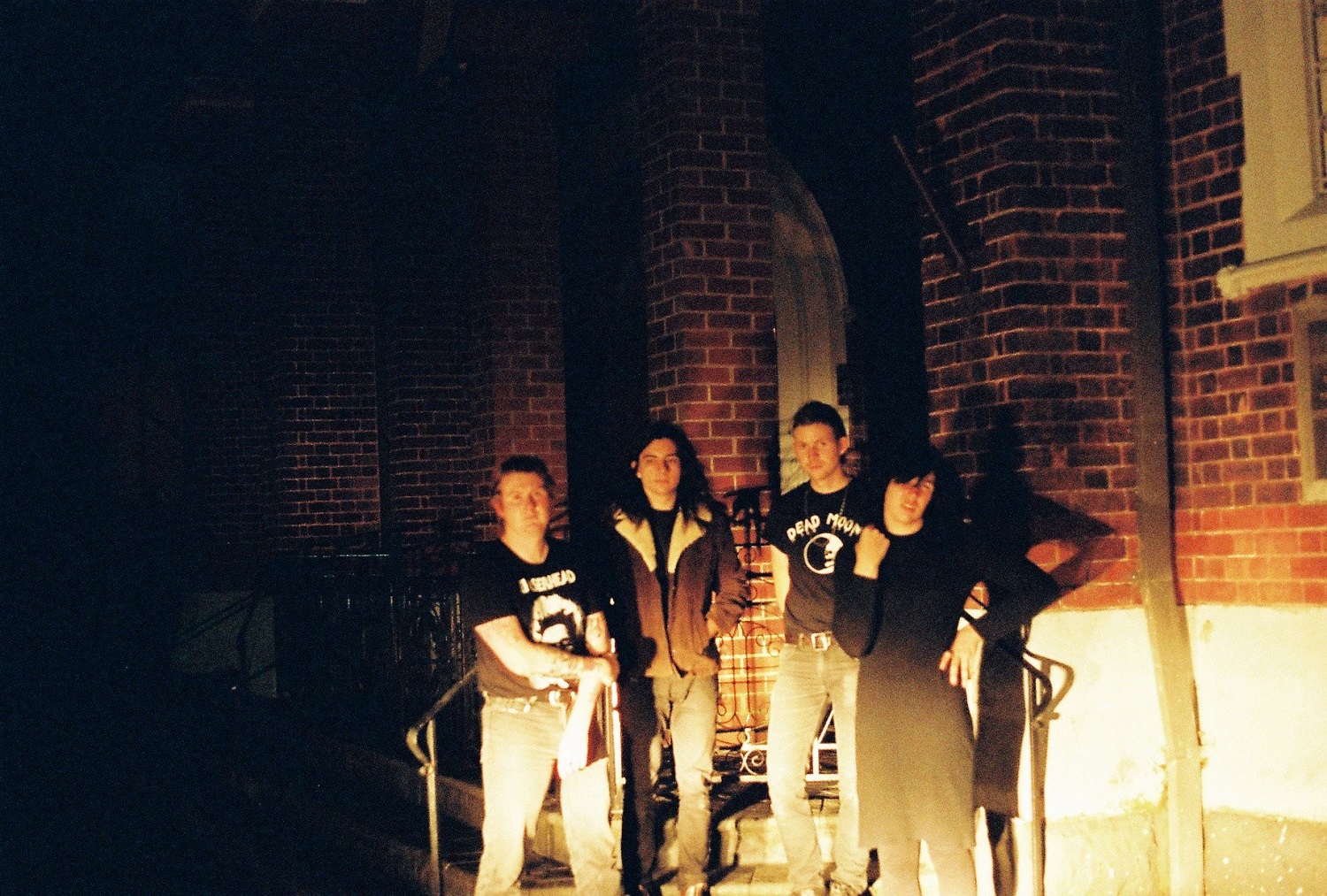Indeed, a record like A Quality Of Mercy, RVG’s latest, combines the confessional with the cathartic, making the intimate seem epic and vice versa. Singles like Vincent Van Gogh are the sound of your diary being read out over a loudspeaker at a rave; a thrilling combination of the heartfelt and the danceable.
But the songs weren’t always that way. When Vager first wrote them, they were the sulky chansons of a singer/songwriter rather than the blown-out ballads they resemble now. “Most of the songs come from little demos I’ve put on Soundcloud over the last couple of years that I’ve taken to the band,” Vager says. “You can still hear the originals online. They’re all much slower and very singer/songwriter-esque. They’re not very fun at all. The input from the other members of RVG has really changed it up.
“The song A Quality of Mercy started off as a boring, country ballad that was half the tempo it is now. Angus [Bell, bassist] suggested during one of our first rehearsals that it should sound a bit more post-punk, like Going Up by Echo and the Bunnymen.
“That really defined what the band was going to sound like, and most of the other songs got that treatment too.”
Even though the album is full of glittering, glistening high points, the most impressive of them all might well be Vincent Van Gogh. The tune is a mini-masterclass in everything that makes RVG great; a song so packed with vitriol and with heart, with beauty and with viciousness, that it might well be the band’s mission statement. “It only took an hour to write I think,” Vager says.
“The initial spark was a friend of mine getting hurt at the time by the actions of somebody that we both knew. I remember aiming to write a song that highlighted that awful Melbourne musician chic that seems to always be in fashion.
“It’s also a bit confessional as well: it’s about a lot of people I know but also there’s a lot of past-life me in it. I’ve had about six people ask me if the song’s about them. I guess it’s working?”
Music is a bit like that for Vager sometimes. It has sharp edges to be used; a bite, to be carefully and sparingly deployed. Not that such a tact always works, mind you. “I never look at any [individual member of the audience] anymore. The only recent time I’ve focused my energy on someone individually was because they were a bad person and I wanted to make them feel uncomfortable and leave. It didn’t work and the songs felt a bit poisoned after that. Most times I keep my head down and try to perform for myself cause that’s the best for the songs.”
And Vager is all about what is best for the songs. You can tell that when you watch her band perform; when you see the way they stand; the way they look. It’s been this way for a while. Though it might be a cliché to suggest that anyone is meant to do anything, it’s hard to put it any other way when you see Vager up onstage, snarling through pitch perfect song after pitch perfect song. “I wanted to be a rockstar in my teens, like everyone I guess,” Vager says.
“A few years ago I had aspirations to go to uni and be a lawyer or a public servant but music seems to keep drawing me back. RVG was supposed to only be a one-off thing and then I was going to try and be an adult. But people liked it so I’ve kept doing it. Thank god.”







